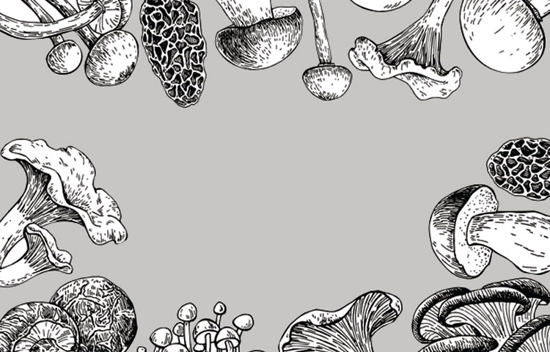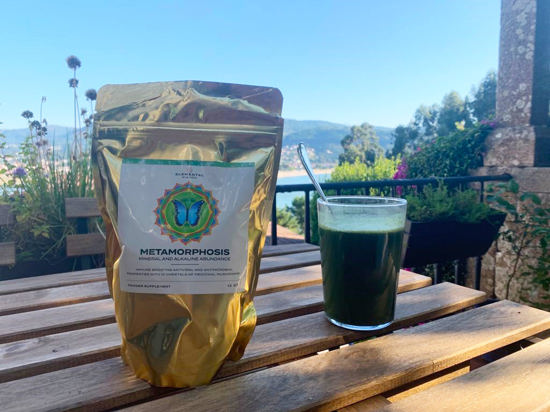Which Mushrooms Support Brain Health?
Posted: 03 Sept 2023 by MYG

Medicinal mushrooms, including Lion's Mane and Reishi, contain a number of valuable nutrients capable of supporting mental function and reducing the risk of insomnia.
The Mild Cognitive Impairment NHS recognised condition is a common neurological issue defining diminished cognitive abilities in a patient. In the UK, experts estimate that between 5 and 20% of all people over the age of 65 have MCI (Mild Cognitive Impairment).
Mild cognitive impairment symptoms may remain stable for a number of years, before gradually progressing to more severe levels. The symptoms of this condition include poor memory recollection, a change in problem solving skills, or issues with concentration, language, attention, visual ability, and thought processing.
Treating Mild Cognitive Impairment NHS
Mild Cognitive Impairment is more than just basic forgetfulness, but the symptoms are not yet significant enough to be classified as dementia. However, the NHS and other medical groups do recognise MCI as a potential warning sign of dementia and other cognitive ailments.
When identifying mild cognitive impairment, NHS professionals will examine the full extent of the issue, using blood tests and other means to determine whether the reason for your cognitive status may be linked to an underlying problem. MCI is diagnosed based on mental performance tests like the Mini-Mental State Examination (MMSE).
Treatment options include addressing the reversible causes of MCI. For instance, benzodiazepines can assist with treating anxiety, sleep disturbances and sleep issues, which all influence cognitive performance while anticholinergics affect the flow of chemicals in the nervous system. Unfortunately, many of these medications have negative side effects. What’s more, because they only treat the symptom, not the underlying issue, the condition may recur once the medication is stopped.
Holistic natural approaches are often considered the safer treatment route. Intellectual stimulation is proven to reduce cognitive decline and memory training can improve the storage of long-term memories. Medicinal mushrooms are also emerging as a powerful and clinically proven solution for MCI conditions.
Medicinal Mushrooms Support Cognitive Function
On a base level, medicinal mushrooms contain a number of valuable nutrients capable of supporting mental function. GABA, or Gamma-Aminobutyric Acid is effective at reducing stress levels and improving neural performance, while reducing the risk of insomnia. GABA supplementation can significantly improve cognitive performance in tasks like temporary visual attention.
Ergothioneine supplementation can help to prevent the risk of mild cognitive impairment, as cognitive issues often appear when levels of this substance begin to decrease naturally with age. Terpenoids in medicinal mushrooms also contribute to myelin regeneration, nerve growth factor synthesis, anti-inflammatory activities, and antioxidant performance.
Studies have begun to show that extracts and compounds from medicinal mushrooms can significantly improve cognitive performance and reduce the risk of cognitive decline. Some specific types of medicinal mushrooms are particularly valuable.
A project called Neurofood developed by Foltra foundation and HdT, a Spanish biotech specialised in mushroom nutraceuticals, examined the abilities of mushrooms to improve neurocognitive functions. Researchers found that the use of medicinal mushroom extracts could significantly improve memory recall, attention and processing speed. Participants also demonstrated enhanced visuospatial skills following the use of medicinal mushrooms.
Which Mushrooms Support Brain Health?
For instance, the Hericium erinaceus (Lion’s mane) mushroom proved its impact on cognitive impairment in a study wherein patients ingested the mushroom extract for 16 weeks. At the end of the 16 weeks, cognitive function improved. Even four weeks after treatment was stopped, the cognition of the patients remained improved according to the Hasegawa Dementia Scale – Revised. [Mori et al., 2009].
The benefit of H.erinaceus comes from its ability to regenerate myelin and new synapses thanks to erinacines and hericenones acting as nerve growth-factor enhancing agents. [Kawagishi and Zhuang, 2008; Mori et al., 2008; Ma et al., 2010]. This medicinal mushroom improves neuronal stability and improves normal brain cell development.
Double-blind studies have further proven that patients given the Hericium erinaceus mushroom achieved much higher scales on the Hasegawa Dementia scale compared to those treated with a placebo.
Research into the Polysaccharides in Ganoderma lucidum also demonstrates that this mushroom can significantly improve cognitive function. The administration of G.lucidum extract in this study promoted the proliferation of the neural progenitor cell for enhanced neurogenesis.
Reishi, or Ganoderma lucidum mushroom is also known as an effective anti-aging mushroom. High levels of antioxidants in this mushroom significantly improve cognitive function by reducing cell aging and tissue damage which may impair mental abilities.
Using Medicinal Mushrooms for Cognitive Strength
Increasingly, medicinal mushrooms are proving their abilities to regenerate damaged parts of the brain and improve neural pathways. Backed by science, these mushrooms demonstrate significant value for those suffering from cognitive issues like Mild Cognitive Impairment.
As a safe substance without any potential side effects, medicinal mushrooms can also work in conjunction with other treatments. However, the right quality of the mushroom extract is necessary. High potency standardized extracts grown organically and no artificial fillers deliver the best results.
Product containing Lions Mane and Reishi:
- Metamorphosis
- 6mix Mushroom Capsules
- Organic 6Mix Mushroom Extract
- Chai Blend - Superfood and Adaptogen Chai Latte
- Organic Lions Mane Extract Powder - The Brain Mushroom
- Organic Lions Mane Mushroom Capsules - The Brain Mushroom
- Organic Reishi Turkey Tail Mushroom Capsules
From the blog

A Footballers Journey with Sports Hypnotherapy
I came to see Claire for hypnotherapy to help me with my performance in my game. I know I am good enough but putting it into practice and showing it on the pitch even if other people would react badly was stopping me from playing with freedom.

What Mushrooms Can Do For Your Health
Mushrooms are fascinating powerhouses of nutrients and compounds that provide many positive health benefits for humans, including...

Metamorphosis Morning Smoothie Recipe
Boost Your Energy & Vitality With Our Metamorphosis Smoothie.